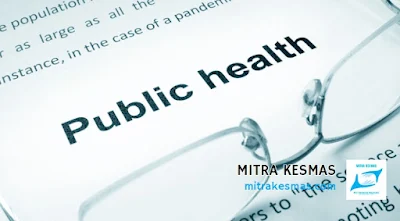Public health is defined as the science of protecting the safety and improving the health of communities through education, policy making and research for disease and injury prevention.
 |
| Definition of Public Health |
The definition of public health is different for every person. Whether you like to crunch numbers, conduct laboratory or field research, formulate policy, or work directly with people to help improve their health, there is a place for you in the field of public health. Being a public health professional enables you to work around the world, address health problems of communities as a whole, and influence policies that affect the health of societies. Public health involves the application of many different disciplines:
- Biology
- Anthropology
- Public policy
- Mathematics
- Engineering
- Education
- Psychology
- Computer science
- Sociology
- Medicine
- Business
- and others
What Do Public Health Professionals Do?
As a public health professional, you will be trained to perform one or more of these ten essential services:
- Monitor the health status of a community to identify potential problems
- Diagnose and investigate health problems and hazards in the community
- Inform, educate, and empower people about health issues, particularly the underserved and those at risk
- Mobilize community partnerships to identify and solve health problems
- Develop policies and plans that support individual and community health efforts
- Enforce laws and regulations that protect health and ensure safety
- Link people to needed personal health services and ensure the provision of health care when otherwise unavailable
- Ensure a competent public health and personal health care workforce
- Evaluate effectiveness, accessibility, and quality of personal and population-based health services
- Research new insights and innovative solutions to health problems
Definition of Public Health According to WHO
Public health refers to all organized measures (whether public or private) to prevent disease, promote health, and prolong life among the population as a whole. Its activities aim to provide conditions in which people can be healthy and focus on entire populations, not on individual patients or diseases. Thus, public health is concerned with the total system and not only the eradication of a particular disease. The three main public health functions are:
- The assessment and monitoring of the health of communities and populations at risk to identify health problems and priorities.
- The formulation of public policies designed to solve identified local and national health problems and priorities.
- To assure that all populations have access to appropriate and cost-effective care, including health promotion and disease prevention services.
Public health professionals monitor and diagnose the health concerns of entire communities and promote healthy practices and behaviours to ensure that populations stay healthy. One way to illustrate the breadth of public health is to look at some notable public health campaigns:
- Vaccination and control of infectious diseases
- Motor-vehicle safety
- Safer workplaces
- Safer and healthier foods
- Safe drinking water
- Healthier mothers and babies and access to family planning
- Decline in deaths from coronary heart disease and stroke
- Recognition of tobacco use as a health hazard.
The term global public health recognizes that, as a result of globalization, forces that affect public health can and do come from outside state boundaries and that responding to public health issues now requires attention to cross-border health risks, including access to dangerous products and environmental change.
Thus the discussion of the definition of Public Health that we can provide may be useful. Greetings Partners Community Health.